
Exciting new series on “Voice, Body and Movement for Lawyers – How to connect with the jury and find Justice Through Dramatic Technique!”
Click here to find out more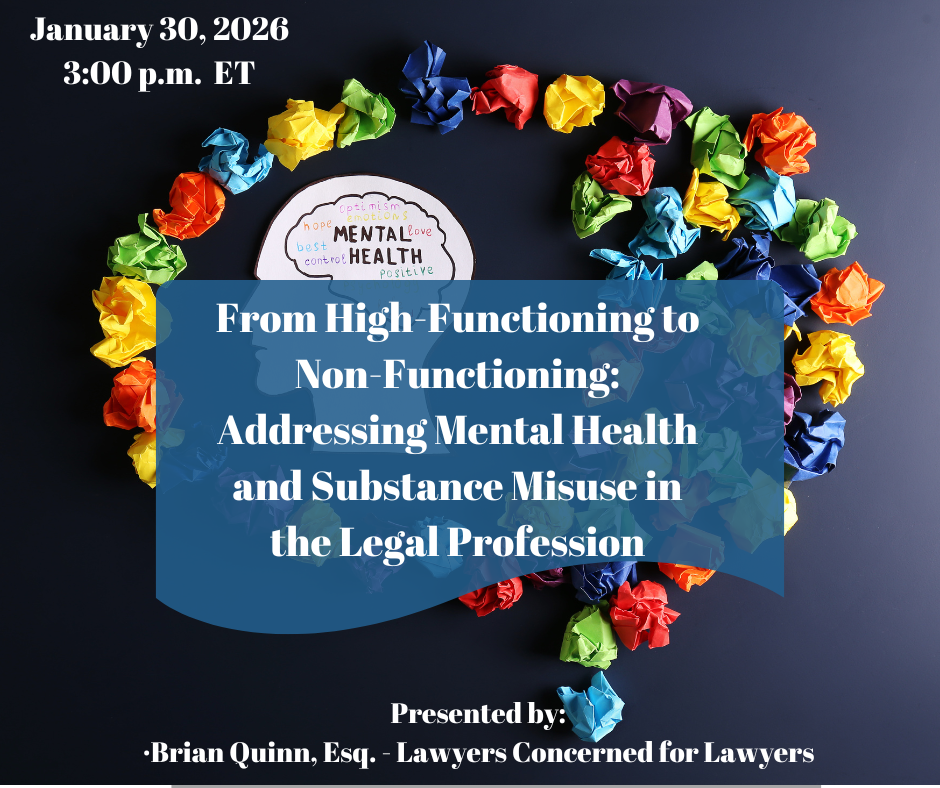
“Maybe I drink more than I should, but it isn’t affecting my life-I’m ‘High-Functioning.”
“I’m fine. I just have a lot on my mind, but it’s nothing I can’t handle on my own.”
Sound familiar? Maybe you have heard someone express an idea similar to the ones above. Whether the cause is substances, mental health disorders, trauma, or any other stress-related event, many people will put off getting help if they are not experiencing dire consequences in their personal and professional lives.
While the term “High-Functioning” isn’t an official medical term or diagnosis, most of us are familiar with what it implies. The continuing ability to perform at a high level can be a barrier to seeking treatment for mental health and substance use disorders. The legal profession is not immune, and in fact may be particularly susceptible to these cycles.
Recent studies have shown that there has been a dramatic increase in impairment due to alcoholism, addiction and mental health disorders among members of the legal profession. The statistics are compelling and clearly indicate that 1 out of 3 attorneys will likely have a need for substance use or mental health services at some point in their careers.
This program will explore:
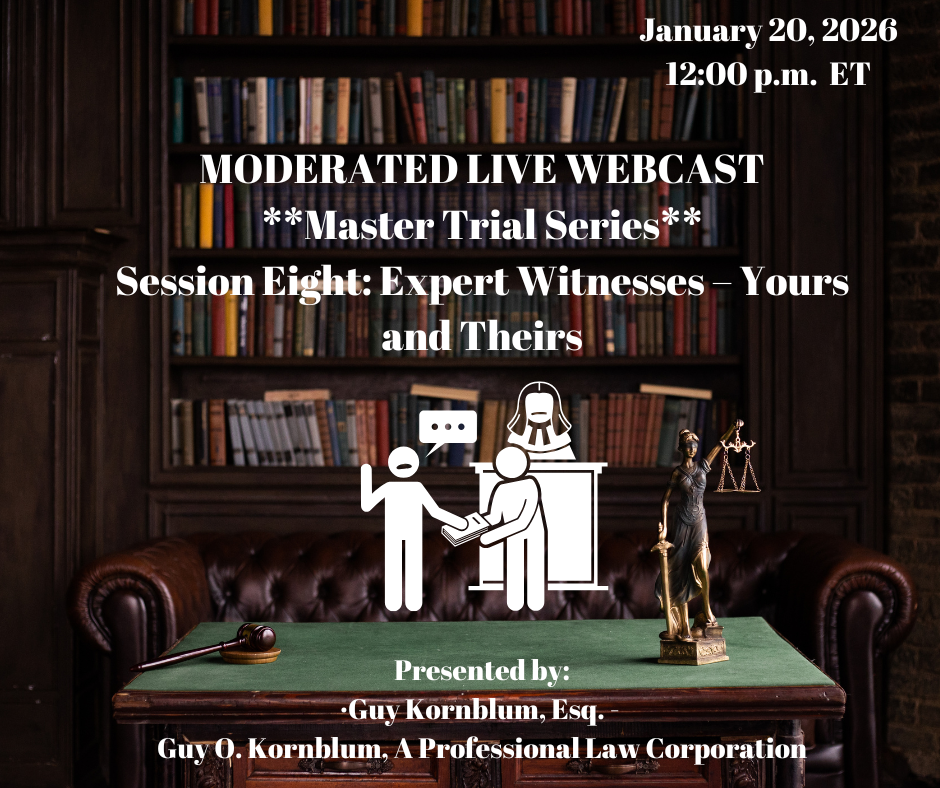
MODERATED-Session 8 of 10 -Mr. Kornblum, a highly experienced trial and litigation lawyer for over 5...
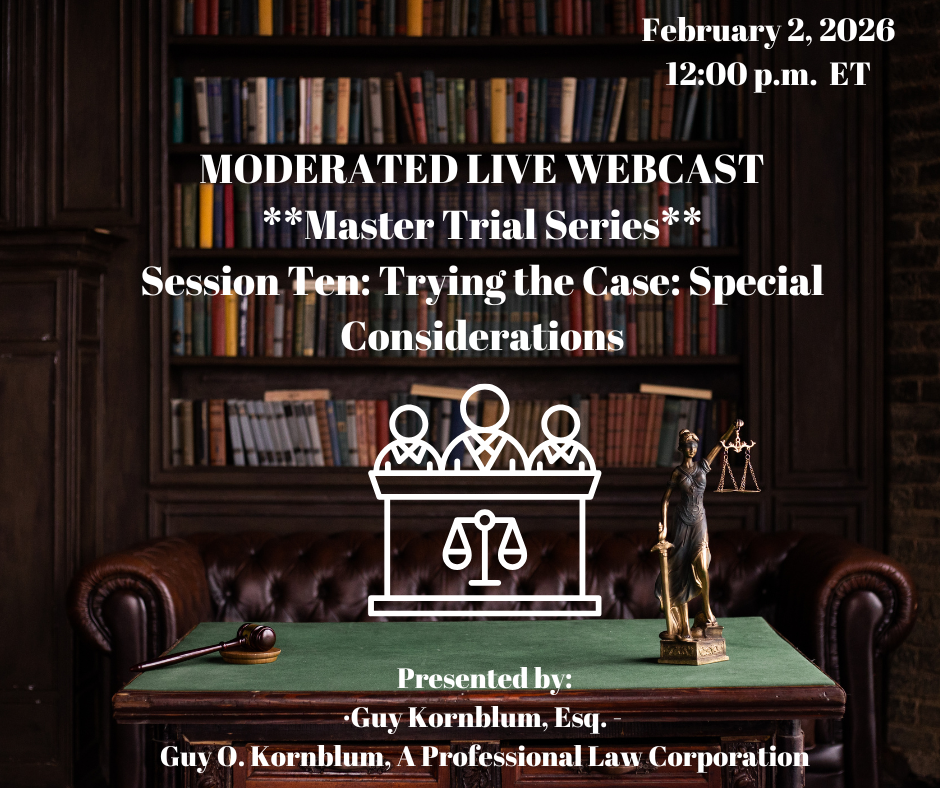
MODERATED-Session 10 of 10 - Mr. Kornblum, a highly experienced trial and litigation lawyer for over...
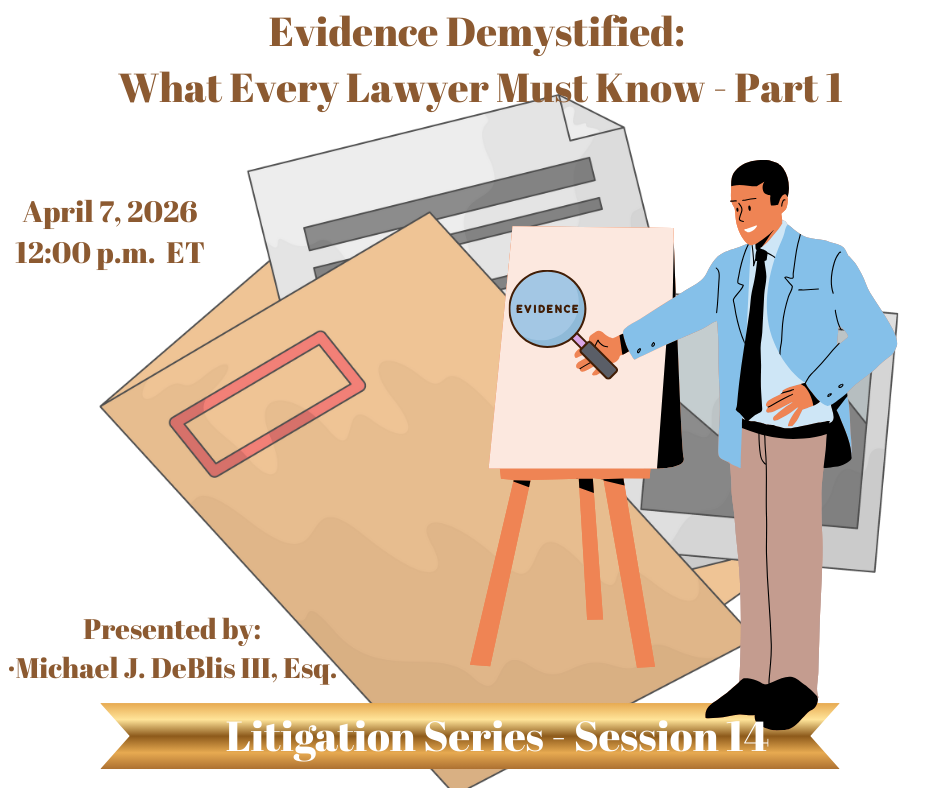
Evidence Demystified Part 1 introduces core evidentiary principles, including relevance, admissibili...
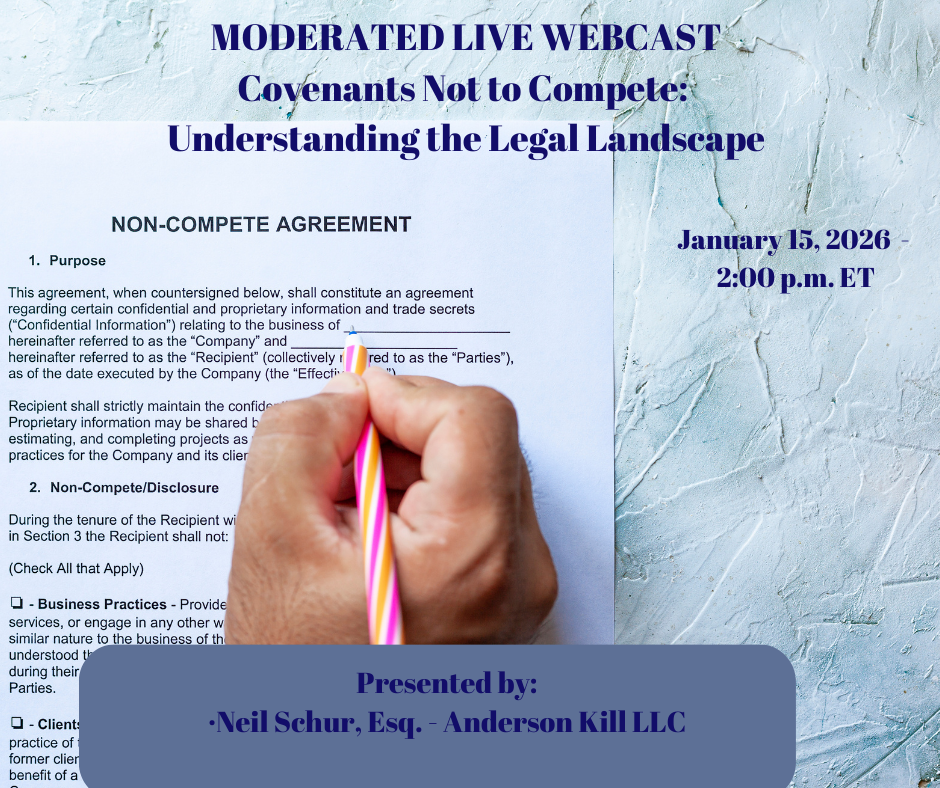
This timely program will help make sense of a legal landscape in flux, as the presenter explains the...
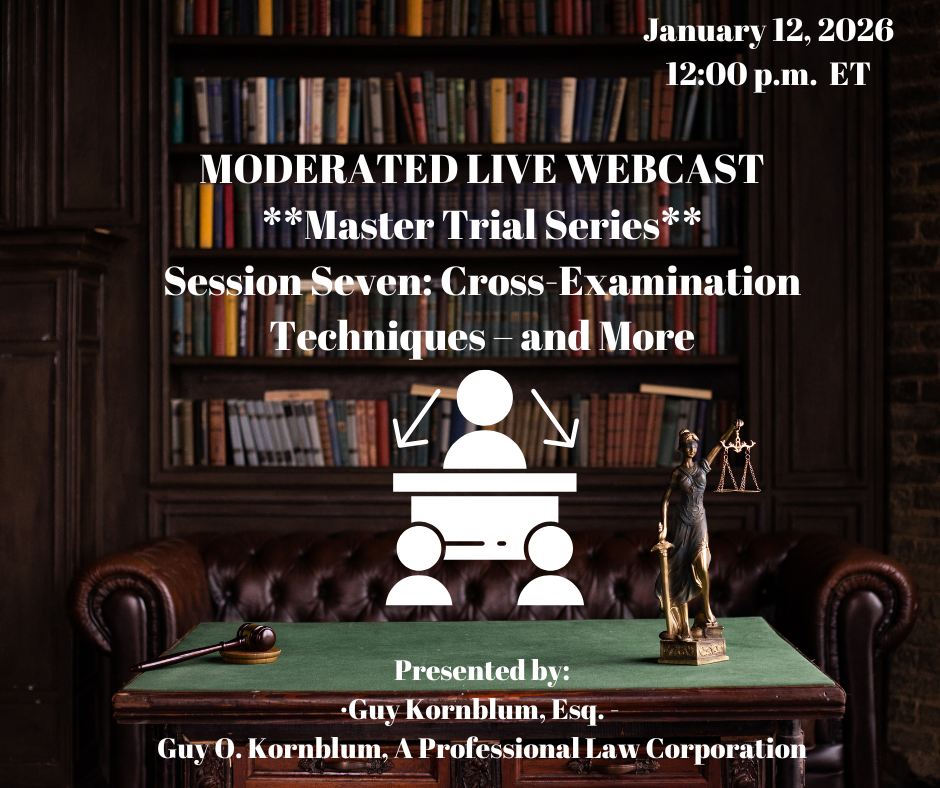
MODERATED-Session 7 of 10 - Mr. Kornblum, a highly experienced trial and litigation lawyer for over ...
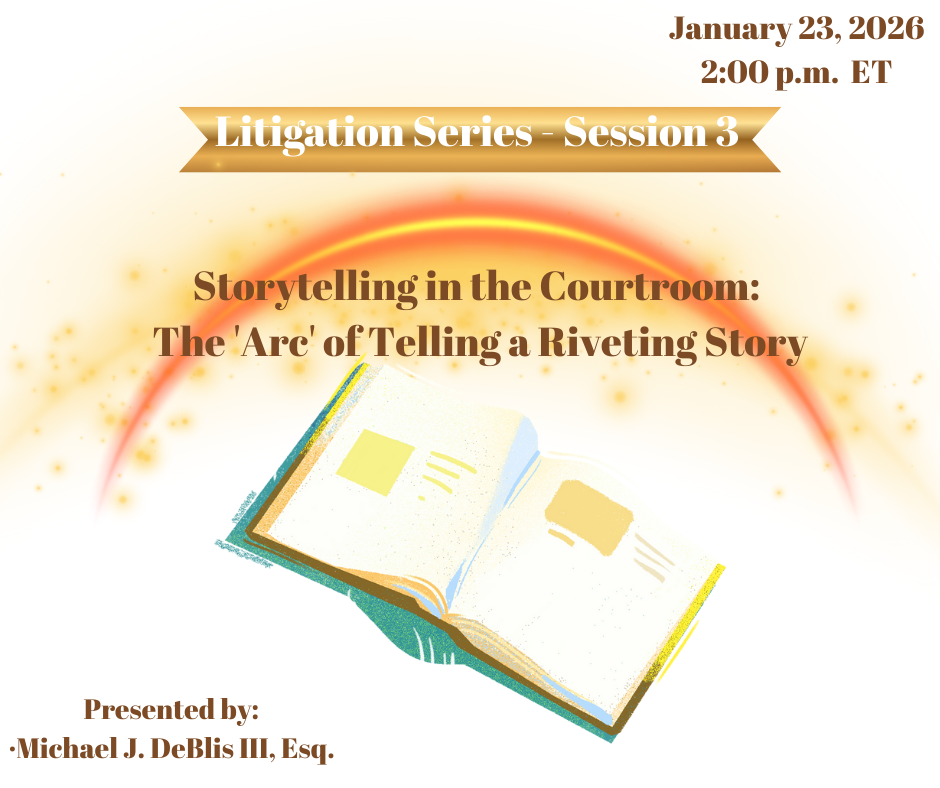
This program explains the architecture of storytelling in the courtroom, using narrative arc, rhythm...
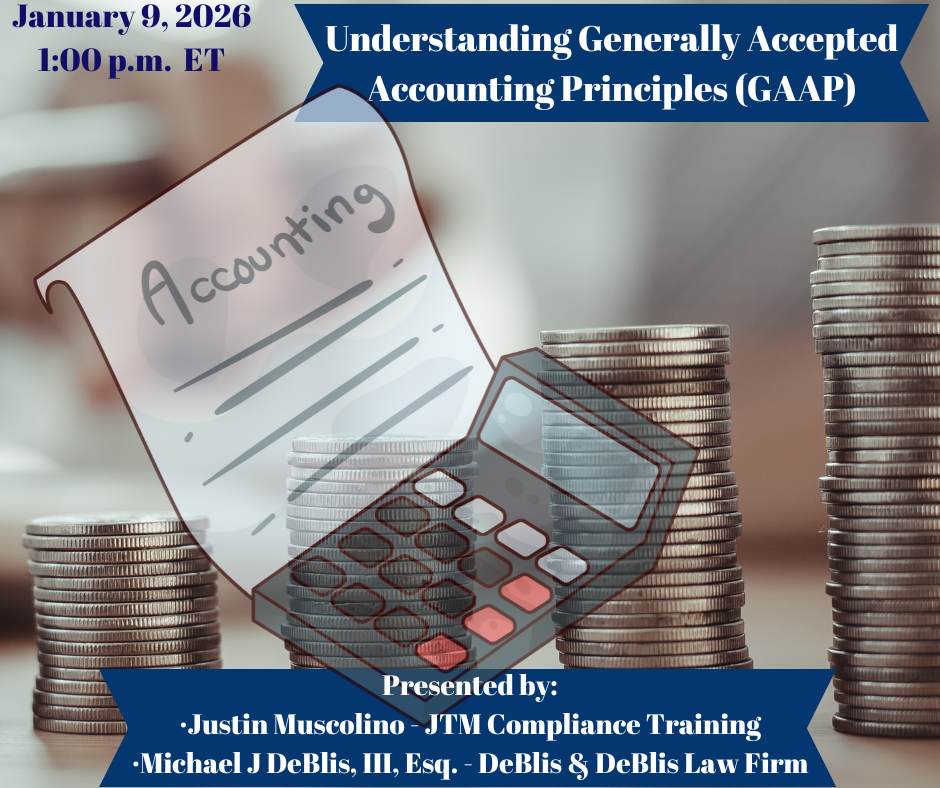
This attorney-focused training provides deeper insight into GAAP’s framework and its legal app...
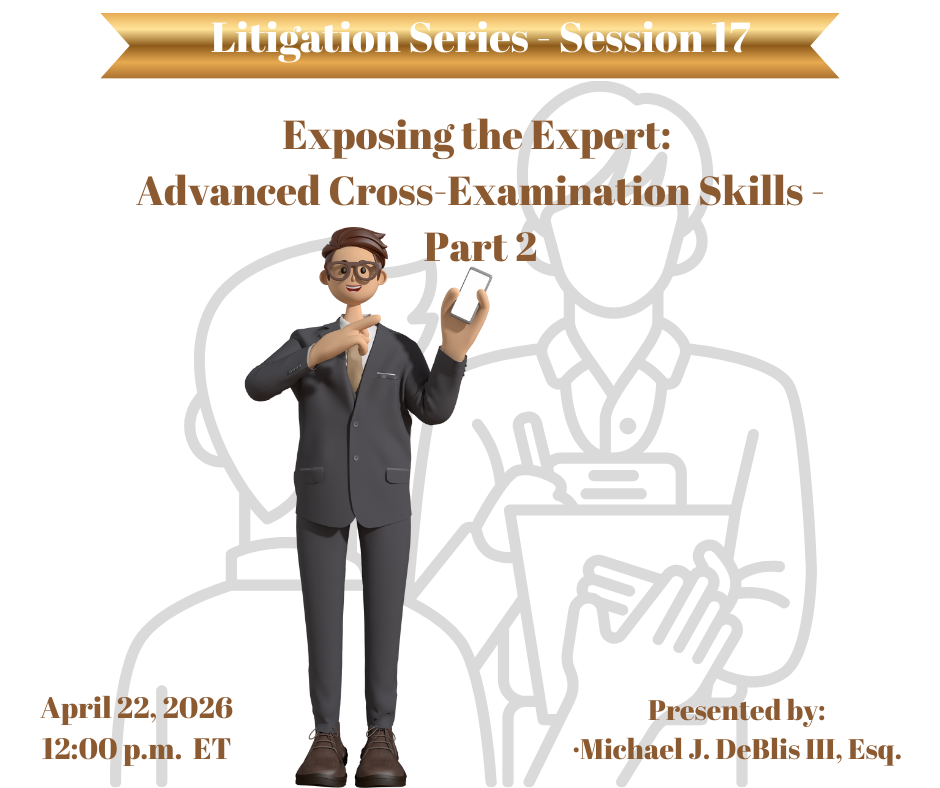
Part 2 - This program will continue the discussion from Part 1 focusing specifically on cross?examin...
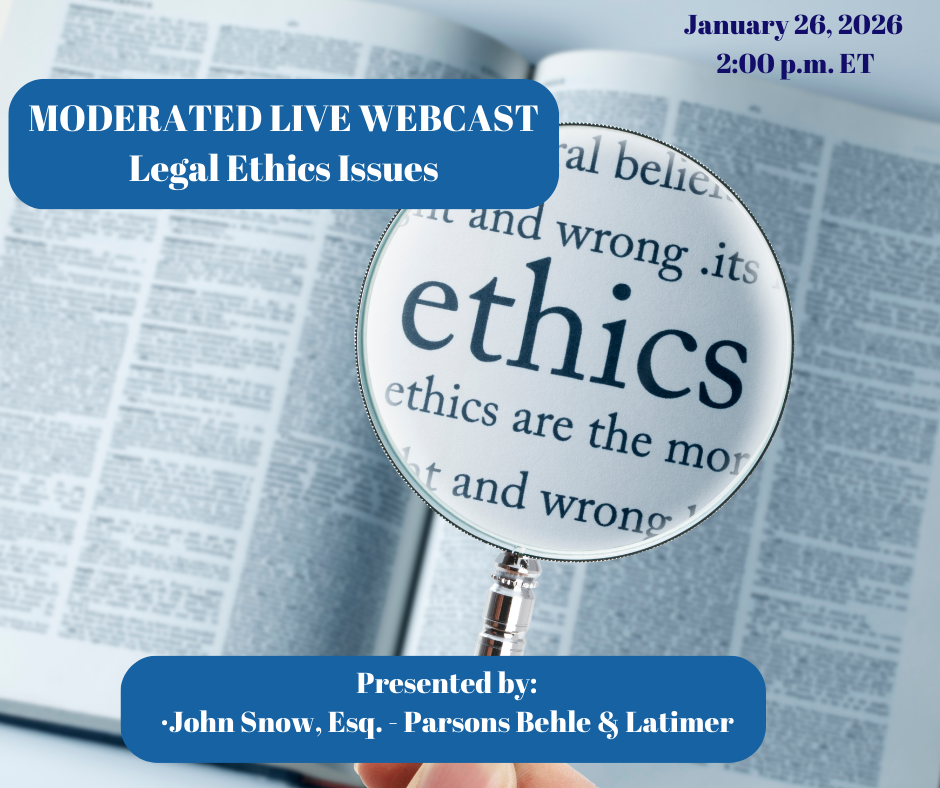
Protect clients and yourself by knowing some of the more common ethical issues that can affect your ...
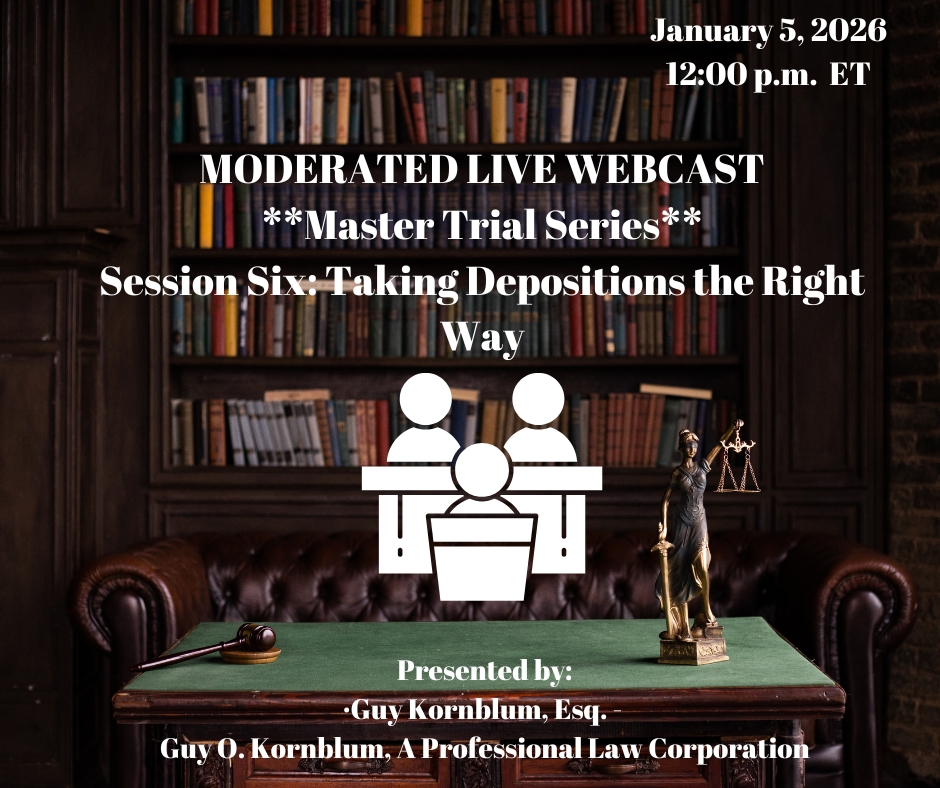
MODERATED-Session 6 of 10 - Mr. Kornblum, a highly experienced trial and litigation lawyer for over ...